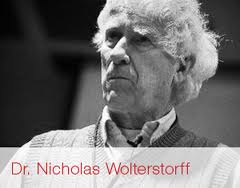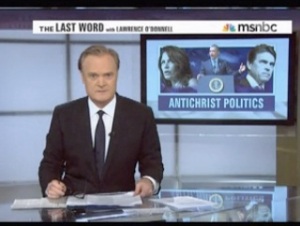In the never-ending debate over gun control another issue has been raised which I believe deserves extended consideration unto itself: is gun control a waste of public resources, saving the lives of terribly few when for the same money we could save so many more by fighting against other sorts of crime, neglect and abuse?
Behind this question there is an assumption that, though we don’t like to talk about it, we do tend to put a certain finite value on given human lives, and do our own sort of triage when it comes to how much we chip in to help particular sorts of individuals. Are there certain people who, like my car, need to be tossed away because it would cost too much to try to save them? It’s self-evidently true that each of us has a finite capacity to help others, so how do we translate that into determining our practical duties regarding helping the unfortunate among us? How do we determine what is just with regard to where we should put our time and resources so as to do the most good… or at least fulfill our basic moral obligations to our fellow (wo)man?
Let me start with a horribly tasteless joke from nearly 30 years ago already: What did Rock Hudson have in common with the Ford Pinto? Both got rear-ended too many times.
I won’t explain that any further than to acknowledge that in its original telling this joke did have certain homophobic overtones to it, which I hope not to reinforce by passing it on. I apologize for any offense this may cause to those who are more politically correct than I am. Regardless of what rumors you may have heard about my deep-seated bigotry, I honestly mean nothing hateful by it.
 That being said, I’m actually old enough to have ridden in the back seats of Pintos many times, and so I know something about being thought of as disposable. It would have cost the company over 120 million dollars to change the model so that the rear differential didn’t act like a can opener on the gas tank in the event that the Cadillac behind you couldn’t stop… but they figured if a few hundred people burned to death in these things that would end up costing the company less that 50 million in damage payments to the survivors, so what the hell.
That being said, I’m actually old enough to have ridden in the back seats of Pintos many times, and so I know something about being thought of as disposable. It would have cost the company over 120 million dollars to change the model so that the rear differential didn’t act like a can opener on the gas tank in the event that the Cadillac behind you couldn’t stop… but they figured if a few hundred people burned to death in these things that would end up costing the company less that 50 million in damage payments to the survivors, so what the hell.
Is there any way of justifying such reasoning? It was certainly enough to make juries sick, and to get that car pulled from production, but it might not have been enough to fundamentally change auto executives thinking about such matters –– at least in ways beyond covering up their paper trails more carefully.
More relevant at this moment in history though is the question, are we going to allow unregulated assault rifles and high capacity, high power semi-automatic pistols to remain in circulation just because it would cost too much per life saved to do anything about them? That is the suggestion I’ve been hearing, mostly from those too young to have ever ridden in a Pinto.
Let’s spin the thought experiments involving cars in a different direction. There is a moral reasoning exercise that I’ve given to 15-year-olds a few times that runs something like this: A successful young engineer is driving along a country road in his  beautiful new BMW sport convertible, with its wonderful Bose stereo, its custom metallic paint job, its custom cream-colored leather seats and its tamely aggressive turbocharged motor. He’s enjoying his ride and singing along with the radio when all of a sudden a 9-year-old boy on a bicycle comes flying out of this side streets straight in front of him on the right side. He swerves his car into the middle of the road and just manages to miss the kid, and as an instinctive reaction he gives a long loud blast of his horn. Seeing the car inches away from him and hearing the horn blaring, the boy swerves off the road, hits the curb, loses control of his bicycle and goes flying down a shallow embankment. The driver pulls over and stops. There on the rocky edge of the woods the kid lays, cut up and bleeding pretty badly from the sharp rocks he hit on the way down, and just barely conscious. The engineer pulls out his cell phone to call for help and discovers that he forgot to charge the battery; it’s dead and he doesn’t have a charger in the car. Now none of this is his fault, but the kid obviously needs more medical help than he can provide. He has to get the kid to a hospital. But to do so is going to get blood all over his car’s interior permanently damage the custom leather seats. It will cost him several thousand dollars/euros to get those seats replaced, and the kid doesn’t look like the sort whose parents would have that kind of money. Does he still have to make the sacrifice and get the kid to the hospital regardless?
beautiful new BMW sport convertible, with its wonderful Bose stereo, its custom metallic paint job, its custom cream-colored leather seats and its tamely aggressive turbocharged motor. He’s enjoying his ride and singing along with the radio when all of a sudden a 9-year-old boy on a bicycle comes flying out of this side streets straight in front of him on the right side. He swerves his car into the middle of the road and just manages to miss the kid, and as an instinctive reaction he gives a long loud blast of his horn. Seeing the car inches away from him and hearing the horn blaring, the boy swerves off the road, hits the curb, loses control of his bicycle and goes flying down a shallow embankment. The driver pulls over and stops. There on the rocky edge of the woods the kid lays, cut up and bleeding pretty badly from the sharp rocks he hit on the way down, and just barely conscious. The engineer pulls out his cell phone to call for help and discovers that he forgot to charge the battery; it’s dead and he doesn’t have a charger in the car. Now none of this is his fault, but the kid obviously needs more medical help than he can provide. He has to get the kid to a hospital. But to do so is going to get blood all over his car’s interior permanently damage the custom leather seats. It will cost him several thousand dollars/euros to get those seats replaced, and the kid doesn’t look like the sort whose parents would have that kind of money. Does he still have to make the sacrifice and get the kid to the hospital regardless?
As it happens, teenagers almost always have the same moral intuition on this matter: of course he needs to get the kid to the hospital. There’s something fundamentally wrong about even stopping to think about the money in such a circumstance. And as it happens, there are “Good Samaritan laws” that would require the driver to do just that, on the basis of which he would go to jail if he were caught NOT helping the kid.
But suppose the engineer were to argue, “Look, what happened to this kid is tragic, but it really isn’t my fault, and while it may look like I’m made of money, I’m really not. But what I can do is, rather than taking this kid to the hospital and messing up my car so permanently, I’ll go straight into town and make a 3000 € contribution to UNICEF for saving kids’ lives in African refugee camps. That way, for less than what it would cost me to get this kid patched up I can be sure to save 10 children’s lives this month. I’m making my own life much easier and doing more than 10 times as much good in the world in the process. Isn’t that the better thing to do?” From a utilitarian perspective such an argument would be rather difficult to refute, but that may just show the inherent weakness of utilitarianism.
This is as good a place as any to start rethinking the foundations of our ethical principles. And while I don’t want to rehash the whole “good without God” debate, I do think it’s time to reconsider the classical Christian “apapist” perspective on this question. The name is based on the Greek word “agape,” used in the New Testament for the sort of love that Jesus taught was the basis of Moses’ law and all subsequent ethical principles. In short, agapism is based on the imperatives that we a) consider all life, especially autonomous human life, to be inherently valuable, and b) make the sort of empathetic connection with those with whom we come in contact which motivates us to unselfishly act for the good (to enable the thriving) of the others in question. Within those guidelines there is plenty of room for debate on specific applications, but they nevertheless provide a profoundly stable basis for determining the difference between virtuous and vicious behavior.

Being able to personally care about our fellow human beings, without any likelihood of getting anything out of it in return, is the essence of agapism.
This perspective can be fruitfully compared with at least four relatively popular ethical perspectives these days: the secular existentialist, the deontological, the eudaemonist, and the utilitarian. There is room for practical agreement on particular issues between followers of all of these perspectives, and many would argue that this is more important than agreement on the ethical premises, but there can come times when we need to stop and think about why we consider given things right or wrong, and how we can better promote the right in the long run. The gun control debate provides us with a good example of how this works.
The existentialist perspective basically says that whatever makes me feel alive and gives my life a sense of meaning and purpose is the right thing for me to do. I should never let others decide for me what it is that makes me important and valuable. Having a certain moral courage to stand up for my own worth and the worth of my influence on society is the highest principle I can act upon. Those for whom this broad brushstroke definition is not sufficient can look up a commentary or two on Jean-Paul Sartre’s thinking to fill in some of the details.
In contrast with this mainstream existentialist perspective, the agapist holds that much of my human value is based on my connection with others, and with our common source of value in God. For purposes of this discussion, however, let’s assume that people are capable of recognizing an inherent connection with one another without needing to postulate a religious basis for it. The point remains that we are inherently social creatures, and in order to be complete as humans we need to relate to others. In southern Africa this is known as the “Ubuntu” principle: “the person is a person because the people are the people.” Acting on the basis of a sense of connection with others is what the existentialist really needs to do in order to find the true essence of selfhood that he is looking for. In practice this means that even if I get a real thrill out of doing cocaine, drag racing, hate-mongering or war gaming of various sorts, if I see that these hobbies are causing the destruction and dehabilitation of my fellow human beings –– those I should be caring about –– the agapist principle says that I must to set aside my sense of personal fulfillment in these regards to serve the greater purpose of promoting the thriving of others.
The deontological perspective in turn focuses on consistency in following rational principles, with the idea that ethics should be sort of like mathematics: what is genuinely morally right will always be genuinely morally right as a matter of principle regarding how moral laws work. Thus if we recognize the importance of private property as one of the necessary presuppositions of our social order, we have to recognize that stealing is always wrong. If we recognize the importance of meaningful and trustworthy communication as a principle of human interaction, we must recognize that lying is always wrong. If we recognize that continuous fear for one’s life at the hands of one’s fellow citizens is an unhealthy state for one to live in, we must recognize that murder is always wrong. All the rest of our ethical principles should be established on similar bases. Those who wish for more detail on this perspective can look up commentaries on Kant’s moral theories.
In contrast with this perspective, the agapist sees moral laws fundamentally as abstractions –– useful, important and constructive abstractions, but abstractions none the less. This is what Jesus was driving at when he told the religious leaders of his day that “the Sabbath was made for man, not man for the Sabbath.” There needs to be room for discretion and clemency in the application of the law or the system simply doesn’t work. Rather than promoting laws for their own sake we need to have laws which protect those we care about –– which enable people to have “abundant lives”. Thus ideas like the Second Amendment in the US Constitution is not something to be seen as a sacred principle unto itself, but at best as an abstract means of promoting human thriving –– at worst as a remnant of an outdated society of genocide, slavery and terrible random violence; but we don’t need to go into that just now.
The eudaemonist perspective, perhaps better known simply as “virtue ethics”, is based on the principle of promoting one’s individual thriving and maximizing one’s individual value through a system of balanced interactions with the rest of society. The final purpose here is to “be all that I can be,” and the means of getting there is by treating my boss, my friends, my spouse, my children and my slaves in the “proper” way as each case may require. The principle by which “proper treatment” is determined in each case is one of balance: I maintain trust, health and honor by giving to others as good as what I get from them, all things considered, and by going overboard with neither self-discipline nor self-indulgence in the various areas of life that I deem important. For a more detailed treatment of this perspective, see the various modern commentaries on Aristotle, particularly in terms of Alasdair MacIntyre’s interpretation of this ancient principle.
The agapist perspective differs here in not considering other people’s value to be instrumental so much as inherent. Other people just are valuable, having worth as people as the most basic premise of the system. This stems from a way of thinking that assumes God has given special value to human beings, but if you choose not to believe that, that’s your privilege. The point is that, in the case of the BMW and the bicycle accident for instance, the driver should have compassion on the kid regardless of whether or not there is anything in it for him in return. In the practical matter of gun control, even if those whose lives would be saved by limiting magazine capacity and firing speed would have nothing to offer you, caring about them and exercising democratic influence on their behalf is still the right thing to do –– not just because it makes you a better person, but because those others are genuinely worth caring about.
Utilitarian perspectives are too varied to sum up adequately in one paragraph. For me to point out the differences in perspective with an orthodox Benthamian perspective, for instance, might be of little relevance here. Suffice to say, most forms of utilitarianism think of all humanity as a giant, somewhat impersonal mechanism, and the preferred output of this mechanism is pleasure; the by-product to be most strenuously avoided is pain. The issues of whose pleasure and whose pain are largely considered to be irrelevant. Consequently most forms of utilitarianism have the difficulty of remaining rather cold and impersonal. Agapist ethics are much more focused on taking things personally, and less focused on mechanizing and universalizing things as important ends unto themselves.
The agapist ethic is perhaps best summed up by the old preachers’ story of the girl walking down the beach as the tide went out, picking up all of the little starfish that were stuck on the shore and throwing them into the waves. A middle aged cynic came along and tried to explain matters to the girl, saying, “Look, kid, there are hundreds of those things here. No matter how long you spend tossing them into the water it really won’t make any difference; most of them are still going to die. Why don’t you just leave them be and go on home already?”
The girl listened politely without breaking her rhythm in her task, and finally she replied to the man, “Overall you are probably right, but this one is going to live… and this one… and this one…”
It is that sort of individualized empathy that causes people to look at tragedies like Sandy Hook and think beyond the perspective that, in the big picture of things, it is a rather small tragedy. Just 20 little kids and a handful of adults –– far less than are killed on motorways every day. Why should we care? The cultural forces of paranoid survivalists like Mrs. Lanza –– stockpiling weapons and making sure they have as much lethal force at their disposal as the law allows and then some –– are seemingly as inevitable as the tides. Trying to prevent such factors from causing the deaths of innocent children every now and again would almost seem to be a fool’s errand.
For the agapist, however, the point remains: even when we can’t reverse all of the destructive trends in our world, individuals are worth caring about, and whenever we can make a difference in terms of saving a few individual lives here and there –– by doing things like labeling the absurd, paranoid mentality that the NRA is promoting for what it is, and passing laws to more sensibly limit the potential loss of life that happens when crazy people get their hands on these high-end killing machines –– that remains the right thing to do.
Does that mean we should care less about children dying of starvation and malaria in Africa? Of course not! Should we turn a blind eye to all of the innocents who die as “collateral damage” in various fronts of “the war on terror”? That’s absurd! Does that mean that we should ignore questions of highway safety and teenage suicide, which exact far higher tolls than assault weapons? Again, of course not! But these are not mutually exclusive matters. And when we see a tragic situation that it is within our power to do something about, with very limited risk to our own well-being to do so, rather than making excuses by speculating about the injustices of the world in general, our task is to decisively confront the situation before us; to help those whom it is most personally and directly within our power to help. That is the properly “Christian” thing to do, and I suspect it is the proper thing for non-believers as well.
I’m sure there will be many who will agree and many who will disagree with my perspective here, and divisions there will not be along religious party lines. Many who will agree with my conclusions will do so on the basis of premises that have nothing to do with Christian perspectives; and many who agree with the premise of agapism will fail to see it as applicable to the gun control debate. I can live with that. As to my own conscience and moral action, however, I will continue to do what I can to help those close to me, and to campaign (part-time) against the further proliferation of high-power weapons in and from the United States. Quixotic as this quest might be, I believe this is the best way for me to live out my spiritual and moral ideals.
Take this for what it’s worth. I actually hope a few readers here decide to take agapism just a bit more seriously. not (so much) for purposes of reinforcing my importance, but because even a few more practicing agapists is likely to translate into a few more deaths being prevented and a few more lives enriched. I believe that’s as worthy a cause as we’re likely to find in this life.
 P.S. If I give credit to one individual whose thinking has influenced my own in this regard in the past month or two it would be Nicholas Wolterstorff, a retired professor from Yale who has dedicated a fair amount of his sunset years to such questions. But what I have to say here is of course my own personal take on meta-ethics, and if there is blame to be assigned obviously it goes to me alone.
P.S. If I give credit to one individual whose thinking has influenced my own in this regard in the past month or two it would be Nicholas Wolterstorff, a retired professor from Yale who has dedicated a fair amount of his sunset years to such questions. But what I have to say here is of course my own personal take on meta-ethics, and if there is blame to be assigned obviously it goes to me alone.























